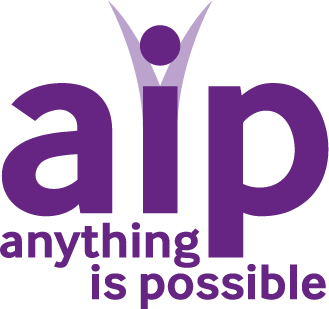I’ve figured out over the years that if I understand me and then try and appreciate how “me” works (or doesn’t) with those around me there is a greater chance of something good happening. During my corporate life it became the basis of my leadership approach and I became a fan of Myers Briggs. Not to the degree that I became a practitioner but enough so that I understood my profile and the profile of those I worked with so I could not only be the best I could but also so I could understand people as individuals and therefore hopefully be a better colleague, team member, line manager, leader…..
Myers Briggs started my journey of thinking about preference versus competence and was further reinforced by the fact I often told people how much I disliked public speaking only to be frequently faced with the response “but you’re so good at it!” Having global leadership and local site jobs required me to speak in front of lots of people so my competence improved over the years but it never altered my preference. Even today I still dread public speaking but do it whilst appreciating what is happening to me as I prepare, deliver and reflect on the session. My increased competence over the years has indeed allowed me to adopt tricks and techniques that deliver a speech which is externally received very differently to how it internally feels to me. Being comfortable with being uncomfortable and being able to portray a higher level of competence can only happen when you have true self-awareness and acceptance.
I know myself so well now I can acknowledge what is happening to me without it overwhelming me. If I have been surrounded by people all day or have had to be leading a meeting or very visible on a walk-about or networking event I can sense myself becoming more abrupt with people towards the end of the day, I can feel frustration rising as more is requested of me but now my internal self can help regulate those feelings and label them as “normal”. Once acknowledged they appear happy to subside for a little longer or at least hang out in the background and let me finish without regret or succumbing to less than ideal behaviour.
In addition to Myers Briggs there are MANY more scales, tests and experts on the subject of understanding yourself and I am sure you have your own personal favourites. One advantage of social media is the ease in which you can now find and access/follow these resources and as such I will simply direct you to one of my many favourites, Susan Cain, and her Quiet Revolution because through her TED talks, tweets, books and blogs she will hold your attention and teach you more than I can explain in this blog topic. It was listening to Susan when I had my first lightbulb moment of understanding myself – when I no longer felt like I had a split personality but was just appreciating that I needed more time alone than I was allowing myself and that it wasn’t weird that I used a “mask” at times when I was at work.
Susan talks about introverts and “quiet” people and I know for sure that most people I interact with would most definitely NOT label me as quiet. My partner frequently lets me know when my nerves are getting the better of me because I am “jabbering”. When I am unsure or worried in a situation I become uncomfortable with silence and fill it with lots of words (to jabber!). I also use humour to defuse or deflect. It is pretty clear I would not be seen as reflective or reserved by those that work with me which actually confuses people as these are indeed part of my MBTI type. But with any kind of assessment like MBTI or any expert like Susan it is for you to glean what makes the most sense to you from what you learn from the results or their observations and conclusions and what you learn about yourself. For example whilst I can be talkative when uncomfortable which is not indicative of an introvert, I most definitely need time alone which is.
Use as many resources as you like in whichever way you personally prefer but do not force fit yourself into what you think you “should” be or what you think the “ideal” or “best” behaviour or attribute is because it won’t help. Any expert worth their qualifications/fee will tell you there really isn’t wrong or right answers, just information and insights that you can use to understand more about what it is like being you.
What an appreciation of “understanding me” has given me over the years is a personal awareness that has built acceptance which appears to help create authentic behaviour. For example, I accept I am going to feel nervous, sick and worry about forgetting what I am planning on saying when I have to speak publically but if I let the nerves have their place they won’t actually harm the outcome and the vulnerability my nerves cause create better storytelling and a more natural delivery. In preparation of their arrival they also ensure I know my topic or am prepared to say I don’t know something and to absolutely respect my audience! I had to watch myself on video many times to actually appreciate how different my internal feelings were (perception) to my external delivery (competence) and that drove me to appreciate the importance of understanding me.

